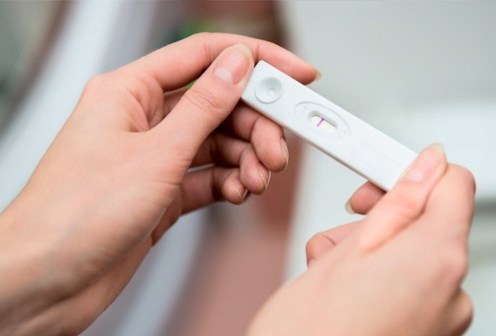
The average woman has a 15 to 25 percentage chance of conceiving a baby each cycle and about 85 percent of fertile couples will be successful within 1 year of having regular unprotected sex. However, some couples face challenges when it comes to conceiving.

Infertility is the inability of a couple to become pregnant after 1 year of unprotected sexual intercourse.

Infertility occurs when something in this pattern does not happen. The problem could be with the woman (female infertility), with the man (male infertility), or with both. Unknown factors cause infertility 10% of the time.
For infertility with an unknown cause, all findings generally from standard tests may be normal. The actual cause of infertility may not be detected because the problem may be with the egg or sperm itself or with the embryo and its inability to implant.
You will have a physical examination and a detailed personal history will be taken. Obesity, acne and menstrual irregularities will be noted, and you may be asked about eating disorders, stress, occupational hazards (working with toxins) for example exercise methods, sexual pattern, previous contraception and lifestyle habits such as alcohol, smoking and prescribed or illegal drugs.
Blood tests may be carried out to seek known reasons for infertility an excess of prolactin (a hormone regulating menstruation), excess or deficiency of thyroid hormone or an excess of androgens such as testosterone.
If you have endometriosis, uterine fibroids, polyps or ovarian cysts, the doctor may refer you to a gynecologist or endocrinologist for assessment.
For your partner, the doctor may suggest a sperm analysis. Finding out early on that he has too few sperm, no sperm at all or slow-moving or misshapen sperm may lessen the chance of you having to undergo invasive tests.

Why some people are infertile is not yet fully understood, but some causes have been identified. In women, it will be because of ovaries which are not producing eggs. Endometriosis and pelvic inflammatory disease can damage or block fallopian tubes. In some women, mucus in the cervix may be hostile to the partner’s sperm, men has a common cause is defective sperm.
Few couples, the genetic makeup of one partner will generally prevent the couple from achieving a pregnancy naturally, or in some cases occupational hazards (such as chemicals and working practices) are involved.

Treatment for infertility in hyderabad may be used to assess the condition of your reproductive system. Laparoscopy is a minor operation involving a small incision in the abdomen through which a special endoscope can be inserted to view the uterus, fallopian tubes and ovaries. Dye is passed through the neck of the uterus (cervix) into the tubes to check for blockage or constriction.
Hysteroscopy can be done in the operating room or office. No incision is required.
Hysterosalpingography, an X-ray technique, uses the radiopaque medium injected into the uterus to outline the reproductive organs. It may identify abnormalities in the uterine cavity and tubal blockages and it should be done in the first 10 days of your cycle, when you are least likely to be pregnant, because radiation may harm a developing fetus. It may cause abdominal cramps.
If ovulation is the general problem, medication which can help induce ovulation. Disorders such as polycystic ovaries, endometriosis and PID can be treated. Damaged fallopian tubes can in some cases be repaired by surgery or in vitro fertilization can be used to bypass them.
It is vital to understand your monthly menstrual cycle so you know when you ovulate and which days are optimal for sexual intercourse. You can identify these by observing changes in vaginal mucus, by making a temperature chart and by calculating over several months the cycle’s length.
There are three vital stages: Fertilization occurs within 48 hours of ovulation and implantation occurs some seven days after fertilization. Ovulation takes place 14 days before the expected next period. This is not the same as saying it takes place 14 days after the last period as menstrual cycles vary in length from 24 to 35 days hence the need to identify the usual length of your own cycle. In a 28 day cycle, the optimal time for conception is on days 11 to 17 of the cycle where day 1 is the first day of the menstrual period. Daily intercourse during this time is generally advised.
You should become familiar with the changes in your vaginal mucus. Just before ovulation the mucus increases in quantity and becomes thinner and more elastic, like raw egg white, and transparent drop can be stretched into a long strand without breaking. After ovulation, it becomes thicker and whiter.
A fertility specialist is usually an obstetrician-gynecologist with advanced education, research, and professional skills in reproductive endocrinology. These highly trained and qualified doctors are the specialists to look about infertility. You can go for female infertility treatment hyderabad hospitals.
Couples may want to talk to a healthcare professional for a referral to a fertility clinic hyderabad. where doctors and staff have this special training. In addition, to fertility clinics often have specialized equipment and imaging technology needed to make a diagnosis and to do semen testing and other specialized tests right at the office.
Your email address will not be published. Required fields are marked *